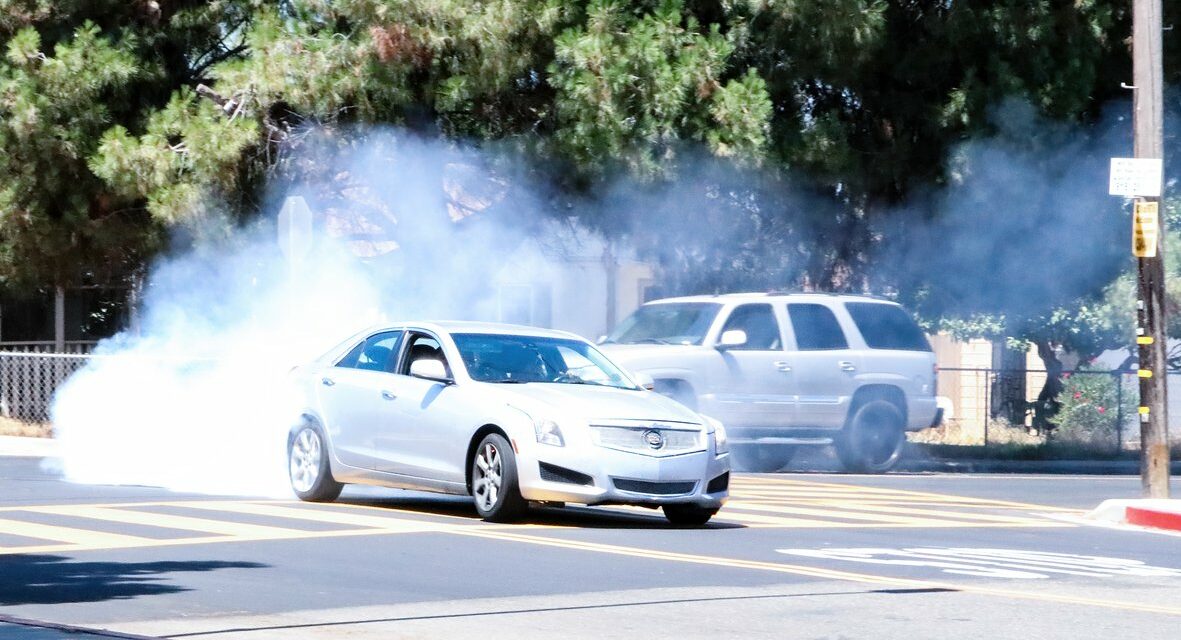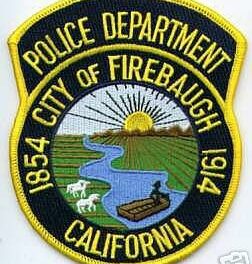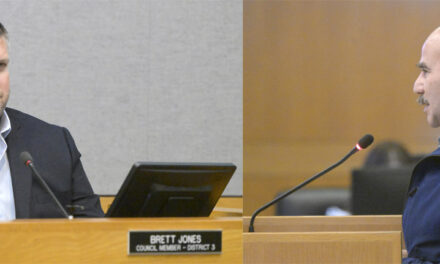As 2025 gets rolling, the California Highway Patrol is highlighting the new public safety laws that were passed during this year’s legislative session and signed by Governor Gavin Newsom. Unless otherwise noted, the laws referenced below took effect on Jan. 1.
Crimes: Organized Theft (SB 982, Wahab)
Senate Bill 982 makes the crime of organized retail theft permanent and strengthens measures to address retail crime. The bill eliminates the expiration date for specific provisions targeting organized retail theft, ensuring long-term tools for law enforcement to combat this issue.
Senate Bill 1242 amends Penal Code Section 452 regarding the unlawful setting of fires. It updates penalties and legal language to clarify offenses, including circumstances involving organized retail theft.
Sentencing Enhancements: Sale, Exchange, Or Return of Stolen Property
Senate Bill 1416 focuses on combating organized retail theft by increasing penalties for those involved in the resale of stolen goods, often referred to as “fencing.” The bill, until January 1, 2030, creates sentencing enhancements for individuals who sell, exchange, or return stolen property for value, particularly when the property exceeds specific thresholds. Punishment increases from one year to four years based on a property value scale ranging from $50,000 to over $3 million.
Theft: Jurisdiction (AB 1779, Irwin)
Assembly Bill 1779 addresses the issue of organized retail theft by streamlining the prosecution process. Specifically, it allows district attorneys to consolidate charges for theft offenses committed across multiple counties into a single trial, provided all affected county district attorneys agree.
Crimes: Organized Theft (AB 1802, Jones-Sawyer)
Assembly Bill 1802 ensures that the crime of organized retail theft remains permanently defined in state law and extends the CHP’s Property Crimes Task Force indefinitely. This bill eliminates the “sunset” clause that would have otherwise allowed the statute and the task force to expire.
Regional Property Crimes Task Force (AB 1972, Alanis)
Assembly Bill 1972 expands the scope of the CHP’s Regional Property Crimes Task Force to include cargo theft as a property crime for consideration and requires the task force to provide logistical and law enforcement support for railroad police.
This bill emphasizes cargo theft as a specific priority and aims to strengthen resources for law enforcement agencies to combat these issues. As an urgency statute, AB 1972 went into effect immediately upon its passage in August 2024 to address these concerns promptly.
Crimes: Shoplifting (AB 2943, Zbur)
Assembly Bill 2943, also called the “California Retail Theft Reduction Act,” strengthens measures to combat organized retail theft by creating a specific crime for serial retail theft, allowing the aggregation of property value for thefts committed within 90 days to qualify as grand theft. It empowers law enforcement to make arrests using video evidence or sworn statements, shields businesses from lawsuits for reporting crimes and promotes rehabilitation through diversion programs for minor offenders. The bill aims to dismantle theft rings while balancing public safety and criminal justice reforms.
Crimes: Theft: Retail Theft Restraining Orders (AB 3209, Berman)
Assembly Bill 3209 creates a retail crime restraining order. A court may issue a restraining order when sentencing an individual for specific retail theft-related crimes, including vandalism of a retail store and assaulting a retail store employee. The restraining order prohibits the individual from entering or being on the grounds of the establishment and may include parking lots adjacent to and used by the establishment.
Emergency Alert Information Sharing:
Electronic Toll Collection Systems: Information Sharing: Law Enforcement
Assembly Bill 2645 allows transportation agencies operating electronic toll collection systems to share real-time license plate data with law enforcement during active emergency alerts, such as AMBER, Ebony, or Feather Alerts. This legislation eliminates the need for a search warrant in such situations, enabling quicker responses to locate suspect vehicles linked to emergencies, such as child abductions.
Tools to Address Reckless Driving and Sideshows:
Vehicles: Speed Contests (AB 1978, Sanchez)
Assembly Bill 1978 permits storing a vehicle when an individual is arrested but not taken into custody for obstructing or placing a barricade a highway or off-street parking facility for purposes of aiding a speed contest or exhibition of speed.
Vehicles: Impoundment (AB 2186, Wallis)
Assembly Bill 2186 permits the arrest and custody of individuals engaged in an exhibition of speed in an off-street parking facility. It also permits the impounding of the individual’s vehicle for not more than 30 days.
Vehicles: Sideshows and Street Takeovers (AB 2807, Villapudua)
Assembly Bill 2807 defines a “sideshow” and a “street takeover” as the same type of event.
Vehicles: Removal and Impoundment (AB 3085, Gipson)
Assembly Bill 3085 provides authority to seize and impound a vehicle with a warrant when the vehicle was used in violation of a speed contest or exhibition of speed (including aiding or abetting). This bill also permits electronic service of the notices of impoundment and storage hearings.
Electric Bicycle Safety:
Electric Bicycles, Powered Mobility Devices and Storage (SB 1271, Min)
Beginning January 1, 2026, SB 1271 focuses on improving the safety standards for electric bicycles (e-bikes), powered mobility devices, and related lithium-ion batteries. It requires these devices and their components, such as batteries and charging systems, to be tested by accredited laboratories to meet specific safety standards. The bill also mandates labeling these products to show compliance with safety regulations, ensuring consumers are informed. Furthermore, it prohibits distributing, selling, or leasing e-bikes and related equipment unless they meet these standards, aiming to reduce risks like fire hazards and electrical malfunctions. Beginning January 1, 2028, the bill would prohibit a person from renting or offering for rental an electric bicycle, powered mobility device, charging system, or storage battery unless it has been tested to the specified safety standard.
Vehicles: Electric Bicycles (AB 1774, Gipson)
Assembly Bill 1774 prohibits modifying an electric bicycle’s speed capability to an extent it no longer meets the definition of an electric bicycle. Also, it prohibits selling a product or device that can modify the speed capability of an electric bicycle to an extent it no longer meets the definition of an electric bicycle.
Vehicles: Electric Bicycles (AB 1778, Connolly)
Assembly Bill 1778 authorizes a local authority within the County of Marin, or the County of Marin in unincorporated areas, to enact an ordinance or resolution prohibiting a person under 16 years of age from operating a class 2 electric bicycle or requiring a person operating a class 2 electric bicycle to wear a helmet.
Vehicles: Electric Bicycles (AB 2234, Boerner)
Assembly Bill 2234 establishes the San Diego Electric Bicycle Safety Program and authorizes a local authority within the County of San Diego, or the County of San Diego in unincorporated areas, to enact an ordinance or resolution prohibiting a person under 12 years of age from operating a class 1 or 2 electric bicycle.
Photo Enforced Speed Enforcement Pilot Program:
The City of Malibu’s Speed Safety System Pilot Program (SB 1297, Allen)
Senate Bill 1297 establishes a five-year Speed Safety System Pilot Program in the City of Malibu. The bill defines a ‘speed safety system’ as a fixed or mobile radar or laser system, or any other electronic device that utilizes automated equipment, to detect a violation of speed laws and obtains a clear photograph of a speeding vehicle’s license plate. The bill establishes mandates regarding policy, enforcement, implementation, public notification, and a system evaluation report.
Clean Air Vehicle Sticker Extension:
Vehicles: High-Occupancy Vehicle Lanes (AB 2678, Wallis)
Assembly Bill 2678 permits vehicles with a Clean Air Vehicle decal to drive in High Occupancy Vehicle (HOV) lanes until January 1, 2027, if federal law permits.
Autonomous Vehicles:
Vehicle Equipment: Driver Monitoring Defeat Devices (SB 1313, Ashby)
Senate Bill 1313 prohibits using, possessing, or selling devices designed to interfere with driver monitoring systems in vehicles equipped with advanced driver assistance systems or autonomous technology. These systems monitor driver alertness and help ensure safety when automated features are used. Violating this law is classified as an infraction. Exceptions are provided for manufacturers testing new technology, vehicle repairs, and updates compliant with safety standards or modifications for disability accommodations. This law aims to enhance road safety by preventing tampering with critical monitoring systems.
Upon the Department of Motor Vehicles (DMV) adoption of necessary regulations, AB 1777 creates new authority for a law enforcement officer to issue a “notice of autonomous vehicle (AV) noncompliance” to an AV manufacturer for an alleged traffic violation committed by one of their vehicles. Beginning July 1, 2026, AB 1777 establishes additional requirements for how AVs that operate without a human operator in the vehicle interact with first responders, including a requirement for manufacturers to provide a two-way device in the vehicles to communicate with first responders.
Pedestrian Safety Around Buses:
Transit buses: Yield Right-of-Way Sign (AB 1904, Ward)
Assembly Bill 1904 authorizes a transit agency to equip a transit bus with a “yield” right-of-way sign on the left rear of the bus. The sign may be a static decal or a flashing light-emitting diode (LED).
License Plate Manipulation:
License Plates: Obstruction or Alteration (AB 2111, Wallis)
Assembly Bill 2111 prohibits any alteration of a license plate’s reflective coating to avoid detection from any entity, not just law enforcement.
Property Theft from a Vehicle:
Crimes: Theft from A Vehicle (SB 905, Wiener)
Senate Bill 905 creates the crime of Unlawful Entry of a Vehicle, which addresses unlawfully entering a vehicle with the intent to commit a theft or any felony. It also adds the crime of Automotive Property Theft for Resale, which addresses possessing stolen property obtained from a vehicle with the intent to sell or exchange the property for value. The property’s value must be over $950.00 and not for personal use. The value of property can be combined within two years of separate acts.




